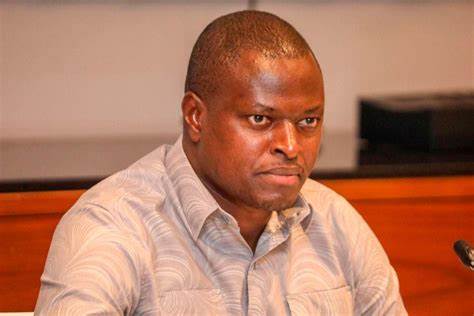Kiharu MP Ndindi Nyoro has raised concerns over the government’s housing levy, saying it is slowing down economic growth. He cited recent data from the Kenya National Bureau of Statistics (KNBS), which shows a sharp decline in the construction sector.
According to the KNBS, the sector shrank by over two percent in 2024, ending an 11-year streak of steady growth. This decline came even as the government rolled out its plan to build 200,000 affordable housing units annually.
The KNBS report shows that construction costs have gone up. Prices for materials, fuel, and labour all rose in 2024. For instance, the price of a 50-kg bag of cement jumped to between Sh720 and Sh1,250, depending on the brand a 15 to 30 percent increase from the previous year.
As a result, cement consumption dropped by 7.2 percent, falling from 9.2 million tonnes in 2023 to 8.54 million tonnes in 2024. Loans to the sector also decreased, with commercial bank lending falling from Sh602.7 billion to Sh528 billion.
“These statistics show that when the government started deducting the levy, it reduced the money circulating in the economy,” Nyoro said. He added, “People who used to send Sh5,000 home for small building projects or to support family can no longer do so.”
Nyoro reminded the public that the levy was first introduced as a refundable contribution. However, it was later changed into a mandatory tax. He believes the economy would perform better if this money remained in people’s pockets.
“One would expect the construction sector to grow under the housing project. Instead, we are seeing a slowdown,” he said.
In terms of jobs, the sector employed 223,400 people in 2024, down slightly from 226,000 in 2023.
Despite challenges, the government continued to invest in infrastructure. The length of bitumen roads grew from 23,000 km in 2023 to 24,900 km in 2024. Superhighways also expanded from 157 km to 365 km, driven by projects like the Dongo Kundu Bypass and the Kipevu Link Road.
Treasury CS John Mbadi, speaking in the Senate on June 5, admitted that the levy had sparked frustration among workers. He said the government would consider reviewing the policy. Nyoro welcomed this move but said the levy should be scrapped altogether.
Nyoro also spoke about the education sector. He warned that budget cuts could reverse gains made by the free education programme started by the late President Mwai Kibaki.
While addressing parents at Mumbi Grounds, he criticised the recent Sh5.9 billion cut from the Sh11 billion allocated for national exams. These exams include KCPE, KCSE, and KPSEA.
“I heard the CS say parents may start paying part of the exam costs. But families in Kiharu are already struggling with fees,” he said. “We must take education seriously if we want our nation to grow.”
Nyoro also raised concerns over Kenya’s rising national debt. He noted that the debt has grown from Sh8.7 trillion in 2022 to Sh11.5 trillion in 2025.
“That means the government is borrowing more than Sh1 trillion each year. This is putting a huge burden on ordinary Kenyans,” he said.




